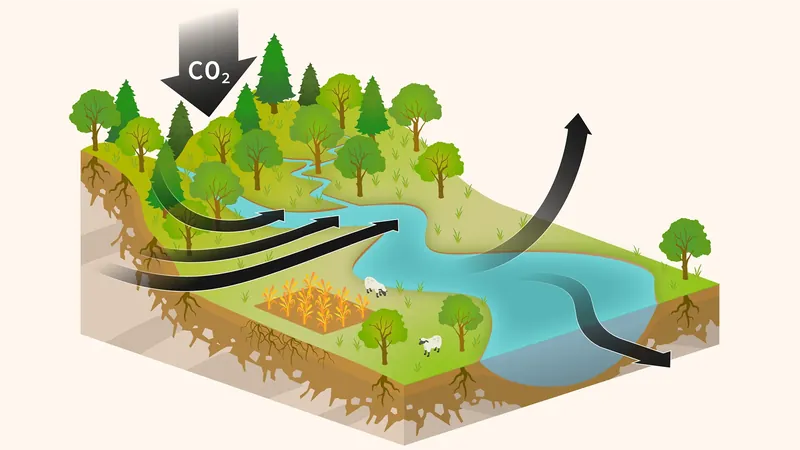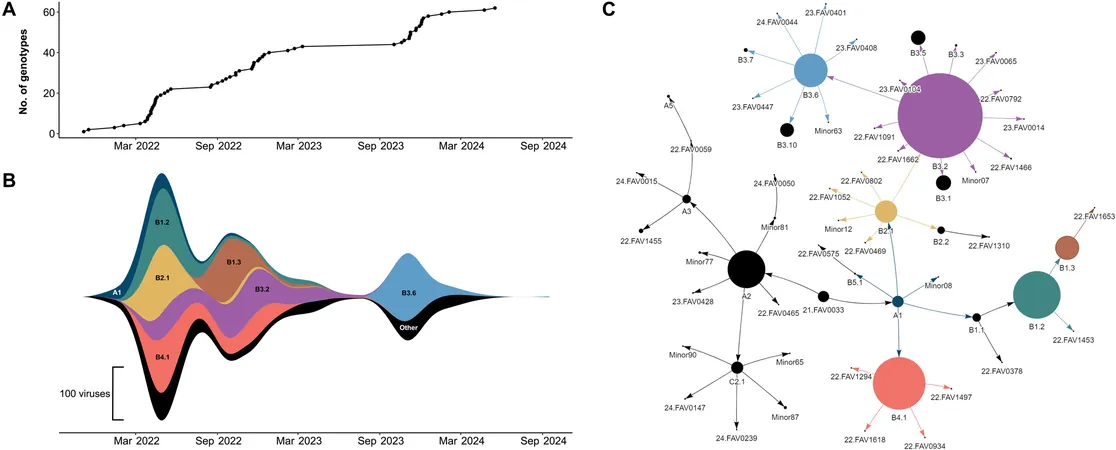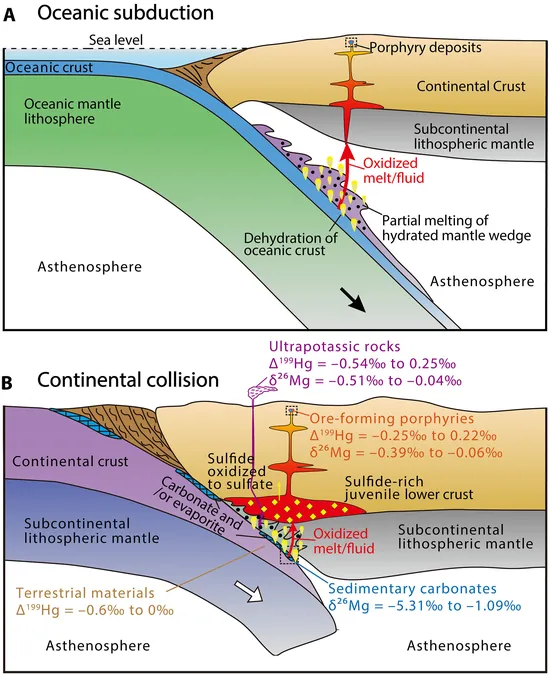
Rivers Are Unleashing Ancient Carbon — Here’s What It Means for Climate Science!
2025-06-12
Author: Rajesh
Old Carbon Leaks Changing Climate Game!
Groundbreaking research led by scientists at the University of Bristol reveals a shocking twist in our understanding of climate change: rivers are exhaling ancient carbon far more than we ever realized! This revelation, featured in the prestigious journal Nature, highlights that plants and shallow soils are now pulling an extra gigaton of CO2 from the air each year to offset this unexpected release.
Dr. Josh Dean, the lead author and Associate Professor at the University of Bristol, expressed his astonishment. "We were surprised to find that old carbon stores are leaking into the atmosphere much more than previously estimated! This has significant implications for global carbon emissions." He noted that while plants and trees absorb CO2 from the atmosphere and sequester it in soils for thousands of years, ancient carbon from deep below is now making its way back to the air.
A Sneaky Release of the Past!
Traditionally, scientists believed that the carbon emissions from rivers were largely due to recent organic materials recycled over the last 70 years. This new research flips that notion on its head, revealing that a striking 60% of emissions originate from long-term carbon reserves, some of which have been accumulating for thousands or even millions of years!
The international research team analyzed over 700 river reaches across 26 countries, using radiocarbon measurements to uncover the age of carbon dioxide and methane being released. Prof. Bob Hilton from the University of Oxford underscores the finding: "About half of the emissions are recent, while the other half originates from deep soil layers and weathered rocks formed over long geological time scales."
Rivers: A Climate Challenge We Can't Ignore!
These rivers are spewing approximately two gigatonnes of carbon annually, which is significant compared to human activity that produces 10-15 gigatonnes of emissions. Dr. Gemma Coxon, another co-author, warns that if over half of these emissions arise from previously believed stable carbon stores, it’s time to reevaluate our understanding of the global carbon cycle!
What’s Next for This Groundbreaking Research?
The researchers are eager to expand this study, exploring how the age of carbon emissions varies among unexamined river systems and how these dynamics may have shifted over time. Stay tuned as they dive deeper into the mysteries of our planet’s intricate carbon network!




 Brasil (PT)
Brasil (PT)
 Canada (EN)
Canada (EN)
 Chile (ES)
Chile (ES)
 Česko (CS)
Česko (CS)
 대한민국 (KO)
대한민국 (KO)
 España (ES)
España (ES)
 France (FR)
France (FR)
 Hong Kong (EN)
Hong Kong (EN)
 Italia (IT)
Italia (IT)
 日本 (JA)
日本 (JA)
 Magyarország (HU)
Magyarország (HU)
 Norge (NO)
Norge (NO)
 Polska (PL)
Polska (PL)
 Schweiz (DE)
Schweiz (DE)
 Singapore (EN)
Singapore (EN)
 Sverige (SV)
Sverige (SV)
 Suomi (FI)
Suomi (FI)
 Türkiye (TR)
Türkiye (TR)
 الإمارات العربية المتحدة (AR)
الإمارات العربية المتحدة (AR)